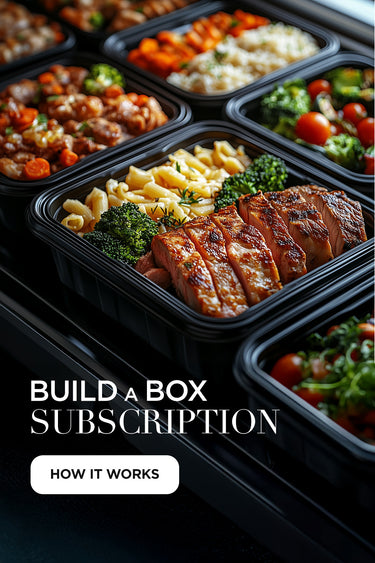Top 7 Common Meal Prep Mistakes That Derail Your Goals
 Meal prep sounds simple. Make food in advance, eat healthy all week, and stay consistent. But many people start with good intentions and still lose momentum fast. It usually happens when prep becomes too rigid, too exhausting, or just not realistic for the way life actually moves.
Meal prep sounds simple. Make food in advance, eat healthy all week, and stay consistent. But many people start with good intentions and still lose momentum fast. It usually happens when prep becomes too rigid, too exhausting, or just not realistic for the way life actually moves.
Here are seven common mistakes that quietly derail your goals—and how to avoid them.
1. Turning It Into a Full-Day Chore
Spending four or five hours on Sunday cooking, cleaning, and packing meals can feel productive at first. But doing it every weekend turns it into a grind. Prep should save time, not consume an entire day. Long sessions lead to fatigue, burnout, and eventually skipping prep altogether. Keeping it short and manageable helps you stick with it over the long term.
2. Forgetting to Include Snacks or Quick Bites
Meal prep is often focused on lunches and dinners, but snacks and small meals are where many routines fall apart. Without something ready between meals, it is easy to reach for packaged snacks or grab something out of convenience. Including quick bites like hard-boiled eggs, energy bites, cut veggies, or ready-to-eat protein helps keep energy steady and cravings in check.
3. Ignoring Storage and Reheating Strategy
Not every meal lasts well for several days. Foods that get soggy or dry out when reheated lead to disappointing lunches and wasted effort. Using the wrong containers, stacking wet ingredients on top of dry ones, or not storing sauces separately can ruin otherwise great meals. Smart prep means thinking about how a meal holds up, not just how it tastes on day one.
4. Prepping Without a Menu Plan
Cooking without a plan often leads to a bunch of random food with no real structure. You might end up with too much of one thing, not enough of another, or meals that do not match up with your week. Taking time to outline a simple menu makes prep easier to manage and meals easier to enjoy. It also helps you avoid midweek gaps that lead to takeout.
5. Not Prepping Based on Your Actual Schedule
It is easy to get ambitious with prep and make meals for every day of the week. But when your real schedule includes dinners out, travel, or busy days away from home, food goes uneaten. That creates waste and frustration. Prep only what you know you will need. Your food should match your calendar, not your ideal routine.
6. Leaving Out Variety in Texture and Color
Meal prep becomes boring fast when everything looks and feels the same. Too many soft, beige meals can make you crave something fresh or different. Adding contrast—like something crunchy with something creamy, or including more colorful ingredients—makes meals more satisfying. It does not need to be complicated. Just changing up a few ingredients each week helps break monotony.
7. Prepping Meals That Don’t Fit Your Mood or Appetite
Prepping only “perfect” meals can feel impressive on Sunday, but may fall flat by Thursday. Food that is too restrictive or doesn’t match your hunger leads to skipped meals or off-plan snacking. Prepping meals that are flexible, balanced, and enjoyable gives you options that still work—even when your mood or schedule shifts.
Smart Prep Supports Real Life
Meal prep works best when it supports your routine instead of controlling it. Rigid rules, bland meals, or overplanning can make healthy eating harder than it needs to be. The best prep strategies are the ones that save time, reduce stress, and leave room for the unexpected.
FitEats makes it easier to stay on track without spending your weekends in the kitchen. Each meal is fresh, balanced, and ready when you are. Build your box or start your subscription and take the pressure off staying consistent.

